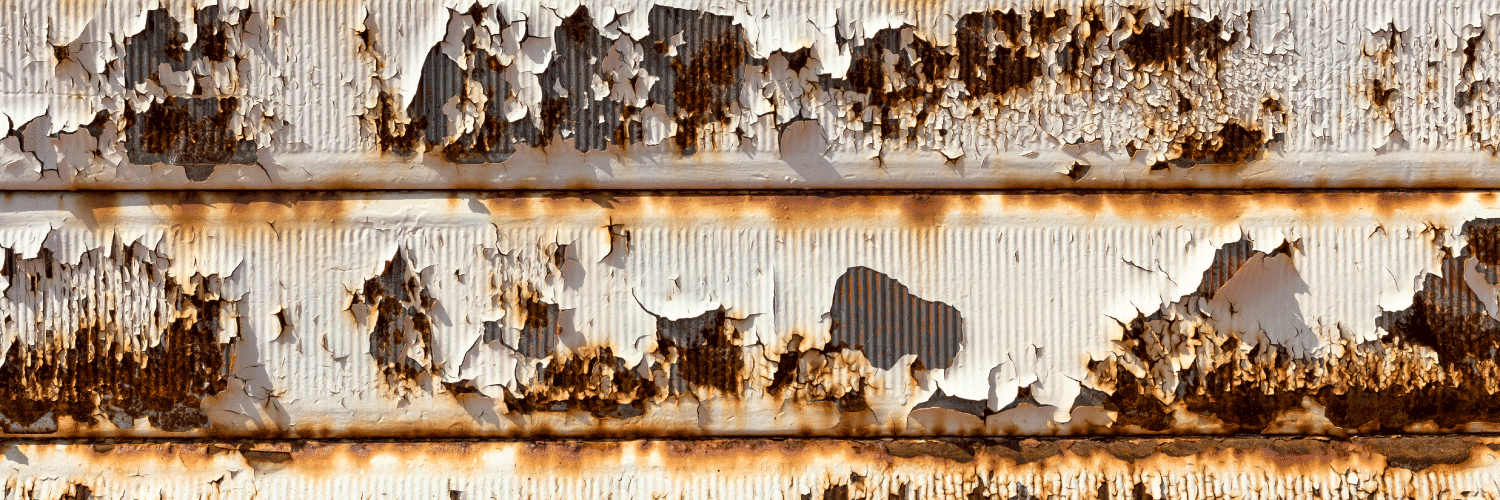When metal appliances are left abandoned, they mostly get spots of a reddish-brown cover. These reddish-brown spots are known as rust. Any metal material from kitchen appliances such as spoons, baking trays, cooking pots, bicycles, set of keys, nails, tools such as saw, harmer and any other metallic appliance made of iron, are all susceptible to form rust.
Rust is a compound formed when oxygen reacts with iron in the presence of water or moisture. Rust will not only make your appliances look old and abandoned but also using rusted appliances can pause some health dangers to you.
Using rusty appliances, for instance, cookware in your kitchen, will not directly harm you. However, consistent consumption of rust, a compound of iron and oxygen, can be a health hazard. Rust is also associated with tetanus, a fatal nervous system infection. However, it is important to note; tetanus is caused by bacteria, most often found in animal wastes and the soil, but not rust itself.
Moreover, if rusty appliances such as nails or saw, come in contact with bacteria, you are at risk of getting the infection in case you are cut. Stay ahead of your tetanus vaccination if you interact with rusty appliances most of the time, or replace your rusted cookware in the kitchen to avoid contracting infections.
Most rusty appliances can be cleaned and remove rust. Below are ways how to clean your rusted appliances and restore their original glamour:
Use a homemade rust remover
Some of your items may get rusty spots even though they are new and still in good condition. You can use homemade solutions such as white vinegar, salt and lime, a paste of baking soda or oxalic acid.
Dip the rusted appliance in any of the solutions above, or sprinkle salt particles and pour lime juice, then let the appliance settle for a few minutes to two hours, scrub off the rust using a brush, and finally wipe the appliance with a dry cloth.
Use rust remover bought from a store
If you do not have the ingredients to make the homemade solutions, you can buy rust removers from a store. These rust removers are made using chemicals that dissolve the rust. Most of the rust removers are made from oxalic, citric and phosphoric acids, which are dangerous for bare skin.
Therefore, remember to be careful when using a chemical rust remover. You can also use a rust converter that you can spray on your rusted appliances to prevent rust from eating away the metal.
Scrap off the rust using abrasive tools
If your appliances are not fragile, you can use an abrasive metal such as steel wool, electric sander or any other rough metals to scrap off the rust. This process will require the use of energy, so you should do this when you are less tired. After scraping your appliance with any other tool, use a fine sander for a smooth finish.
Although you can remove rust on some appliances, some of them are not salvageable and may mean throwing them away. Therefore, it is important to prevent rust from forming in the first place.
Below are ways to prevent rust.
Keep your appliances clean and dry
Rust occurs when iron combines with oxygen in the presence of water. This is why metals left outside are more likely to rust than those stored in a dry place.
Buy stainless steel appliances
Although stainless steel contains iron, it also contains chromium. Chromium is more reactive than iron, therefore it quickly oxides to form a protective coating on the appliance.
Apply a protective coating
To protect your appliances from rusting, apply available products in the form of aerosol to provide strong resistance to corrosion. Dipping your appliances in sodium hydroxide and potassium nitrate solutions will also protect them from rust.
Use galvanised metal
Galvanisation is the process of coating steel with liquid zinc. Zinc forms a protective layer on the steel to prevent rusting. Get appliances that are made from galvanized metal.
Perform regular maintenance
Rust spreads very fast. Therefore, perform regular maintenance on your appliances and scrap of any rust spots.
Rust is not necessarily toxic, however, it can harbour bacteria and other disease-causing organisms. You can clean off the rust from your appliances, but since prevention is better than cure, make sure you prevent the rust from forming.







